"It's the right thing to do."
These were the words that writer and activists Thomas Mayo used at Federal Park at Wallsend on Saturday, August 19, to sum up why the Voice to Parliament referendum, that could be called in as few as 60 days, had to result in a yes vote.
"Not only is (The Voice) important to save Aboriginal and Torres Strait Islander people's lives, to see better outcomes, and to finally close that gap that we should all be ashamed of as Australians, but this builds our nation; this is a strengthening of our democracy."
Mr Mayo made such comments during a Yes Campaign event at Wallsend at the weekend that coincided with the arrival of former politician turned ultra-marathon runner Pat Farmer in the city, who has been running around Australia for the past few months in support of the campaign to amend the constitution.
Mr Farmer's trek began in Tasmania in April and has since circled the Australian mainland, running thousands of kilometres to spread the message for what a Voice to Parliament means for the nation.
"This is something that our children and our grandchildren will celebrate," Mr Mayo said, in praise of Mr Farmer's efforts, which would "be remembered forever".
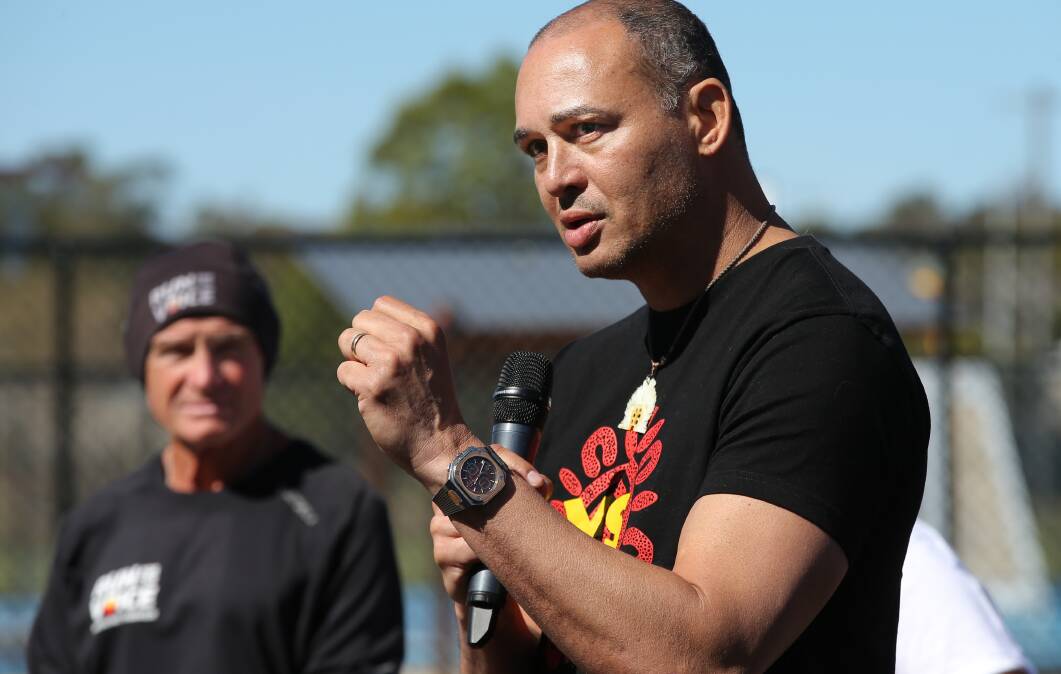
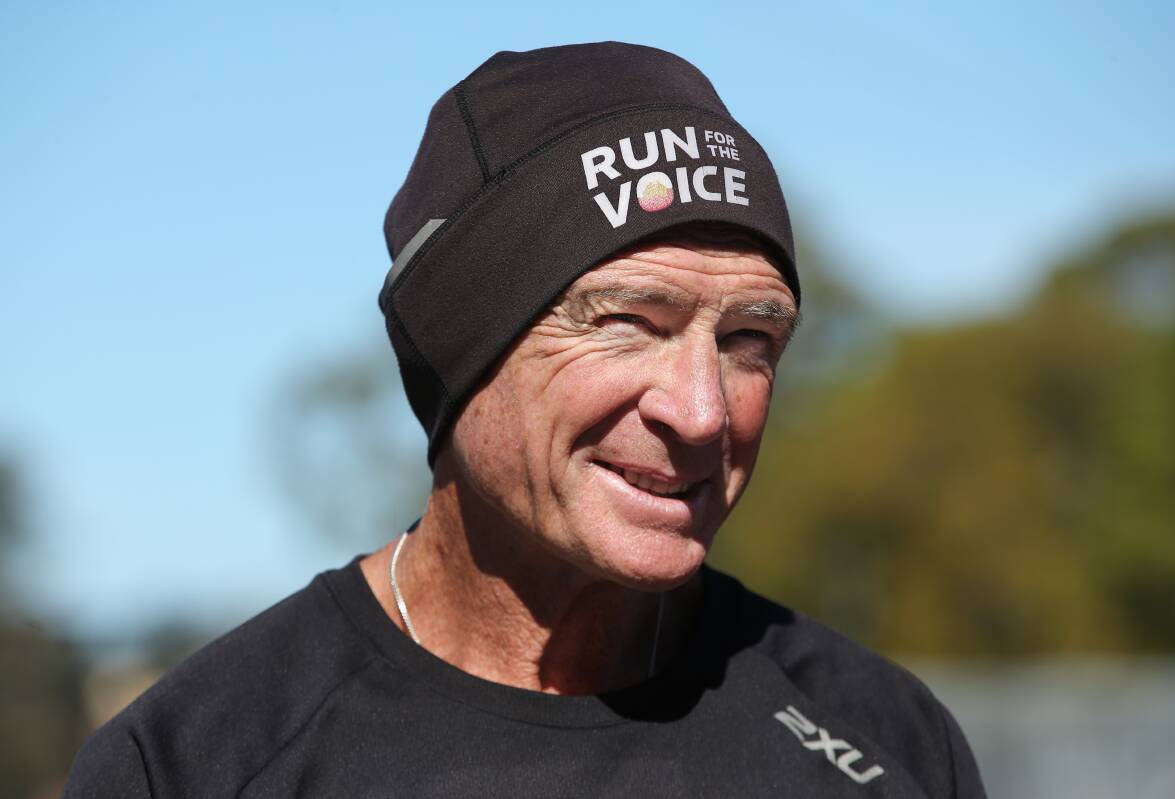
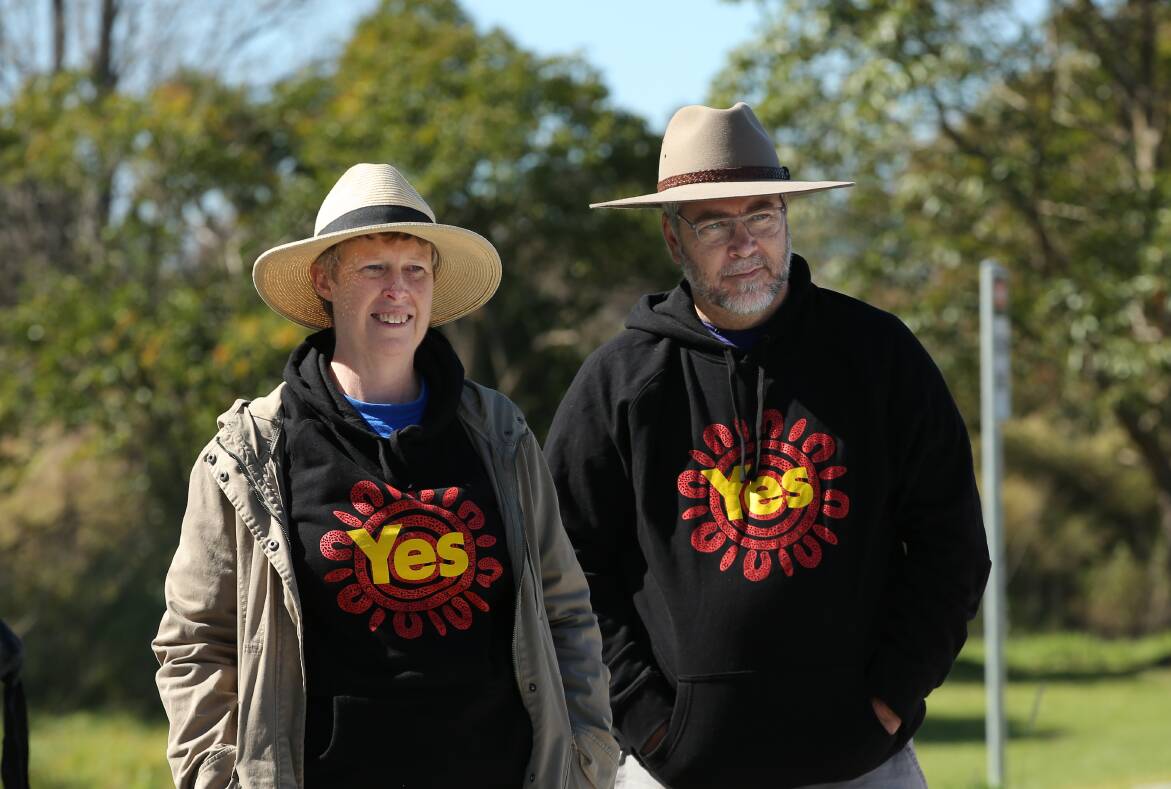
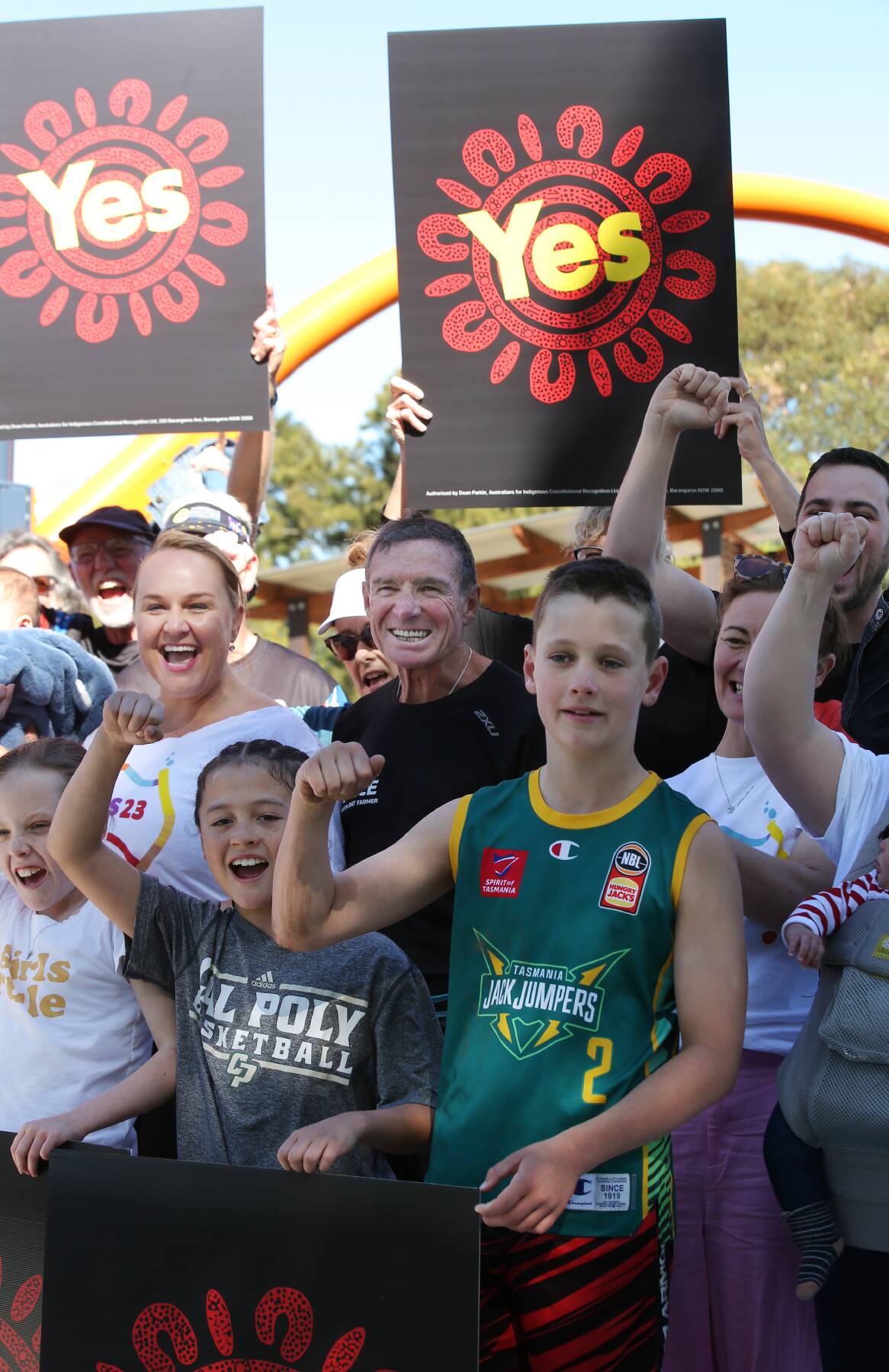
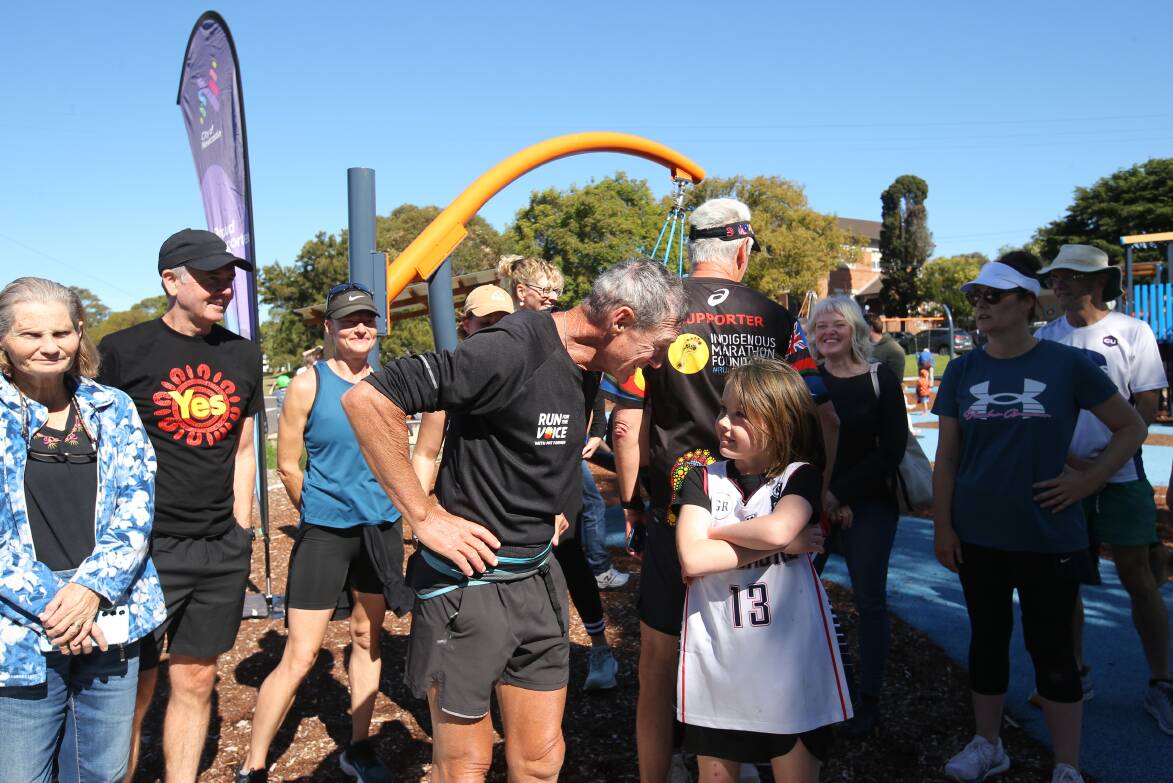
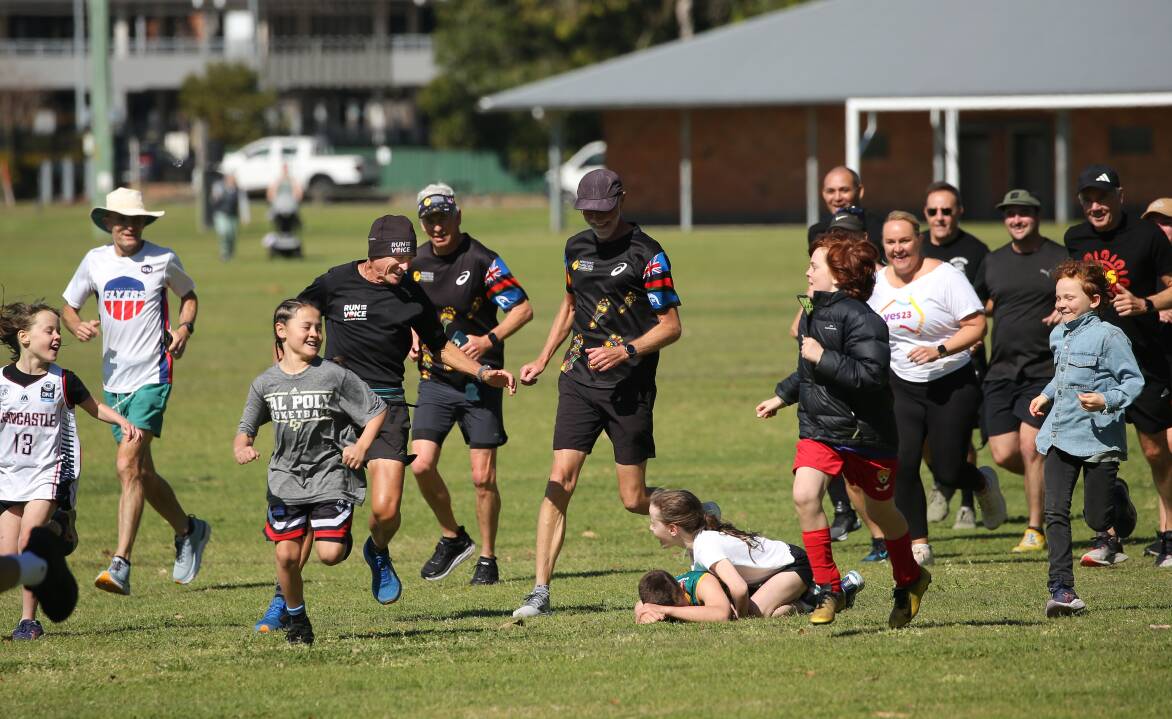
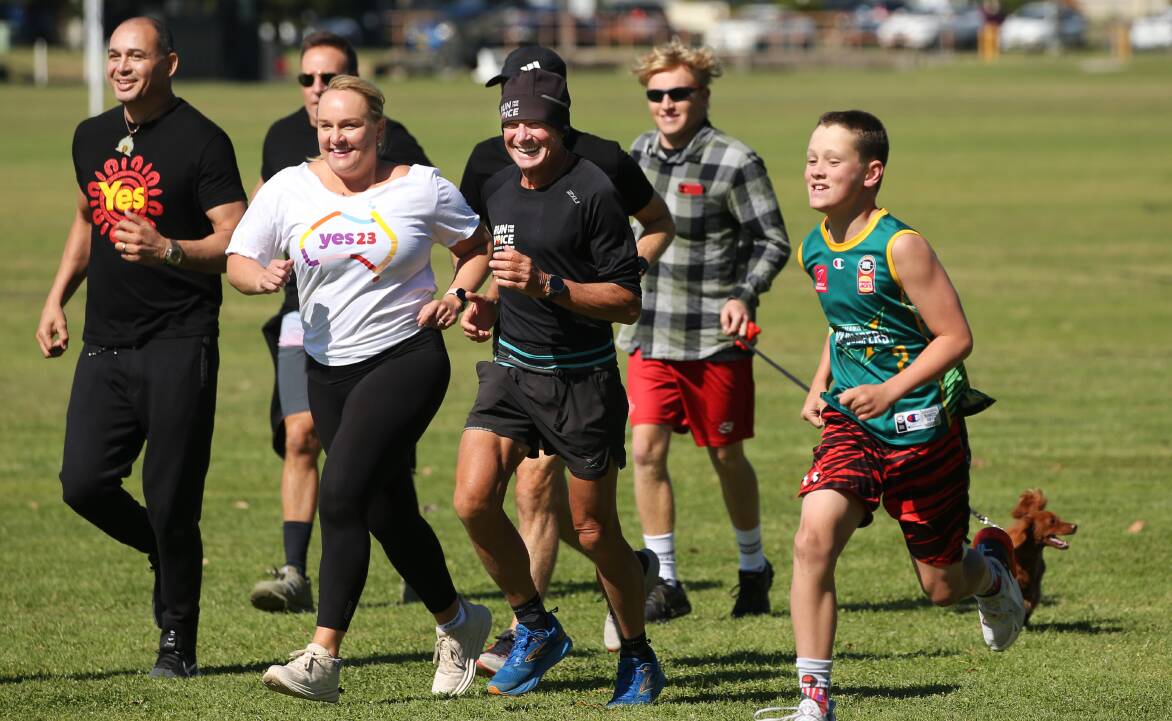
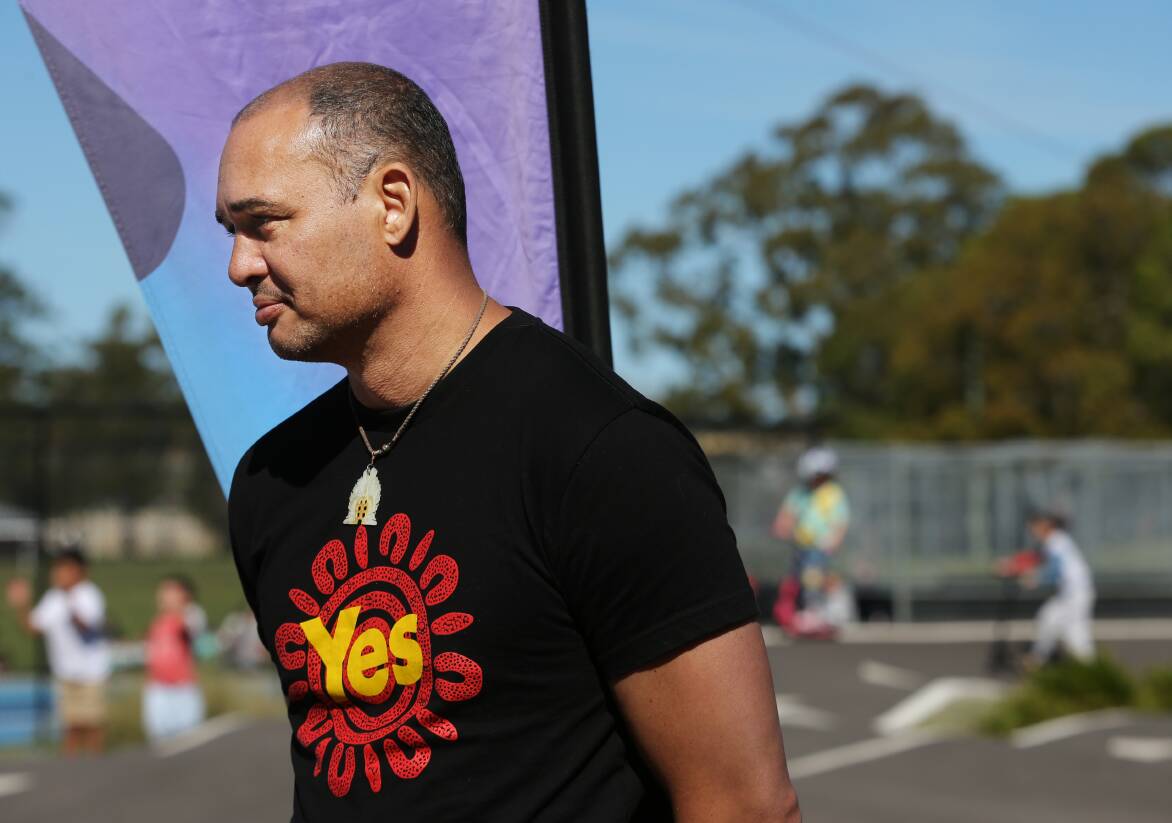
Mr Farmer spoke briefly on Saturday and said the Voice would strengthen the nation's democracy and, contrary to conservative criticism, would unite the country and strengthen the bonds of culture.
"This opportunity is not going to come again in my lifetime," Mr Farmer said, "That's why all of us, as Australians, need to embrace it.
"We ned to embrace this opportunity here and now because we not only have elders present and emerging but past elders on whom we can reflect more than 60,000 years worth of history ... so that we can stand up and say we are Australia. We are the longest continuous, surviving population on earth."
The referendum, which is expected between October and December, will propose changing the constitution to enshrine the "Voice" - a body that would advise Parliament on issues relation to Aboriginal and Torres Strait Islander people.
According to the proposition, Parliament would consult the Voice on matters that overwhelmingly relate to First Nations people, such as native title, employment, housing, the community development program, the NDIS or heritage protection.
The campaign's national organising director, Emily Holm, was at the event on Saturday and said despite a growing wave of conservative criticism and misinformation about the Voice, the sentiment of voters was with the Voice.
"Our biggest challenge is making sure that everybody understands what they are being asked, and on that point we have no concerns," she said, "Australians always do the right thing by their neighbours and their brothers and sisters.
"People just want to understand. It's not as straightforward as the same-sex marriage plebiscite; there are some things that we have not considered before ... but everywhere we go people just want to know what it is and after that, their first question is "is that all? Who would say no?""
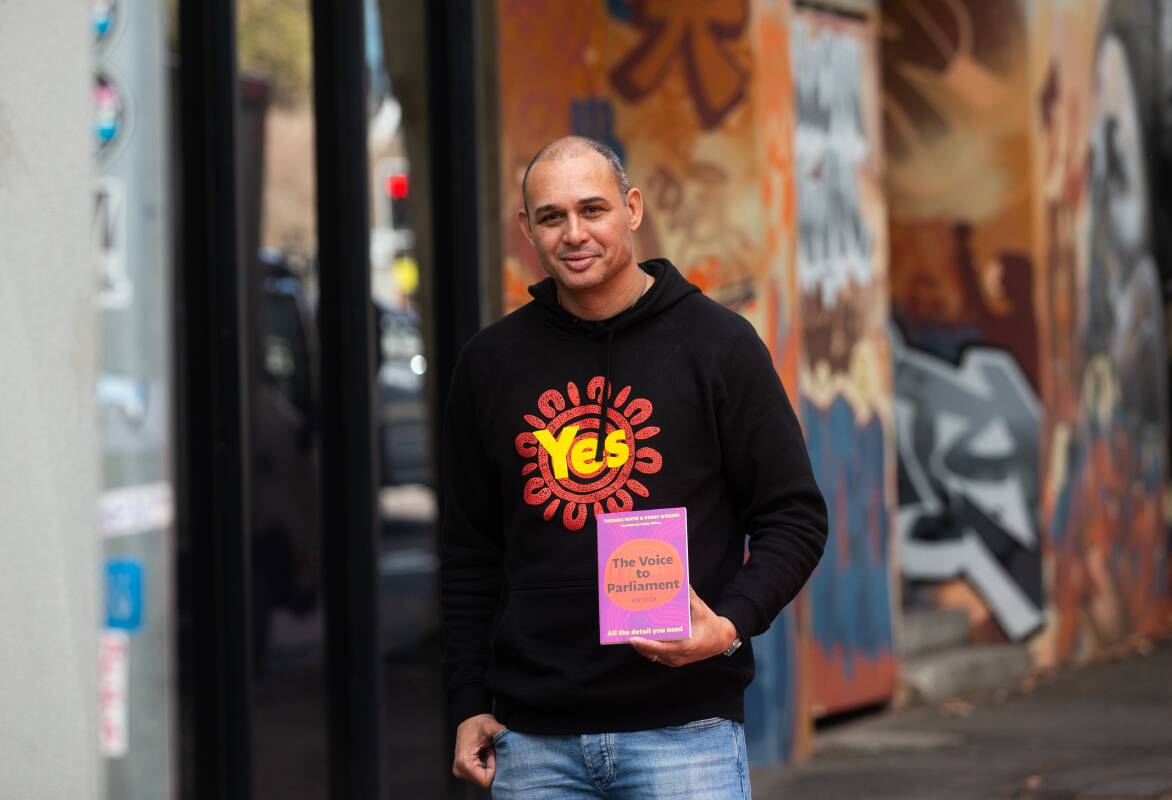
In his comments, Mr Farmer urged voters to read the Uluru Statement from the Heart, from which the Voice proposition was established and called on the country to "walk together as one".
"It is the basis of what this journey is all about," he said, "It's about all Australians working together, united in one country ... this will unite us."
Mr Farmer, who has run extreme distances across the world in support of charitable and humanitarian campaigns, including running the lengths of India and Vietnam, as well as an epic challenge running from the North- to South Pole via South America, said none of his feats thus far had proven to be as important as supporting the Voice.
"Nothing is more important than this run right here, right now," he said, "Those (other) causes still need support - those needs still go on - but we have a chance here, a moment in time, to make a difference forever.
"To give all those children who are emerging, and their children's children, a fresh start; to leave all the bigotry and hatred from a White Australia in the past.
"I've heard people say, why are we going to so much trouble when (First Nations) people are only three per cent of the population, and my answer is that they were 100 per cent of the population before we got here.
"We owe this to ourselves and we owe it to our kids."
What is the Voice to Parliament and how will it work?
A referendum is expected to be called a some time between October and December, 2023, to ask Australians whether they agree to changing the constitution to enshrine a First Nations voice to parliament.
The question has already been decided and will read as follows:
"A Proposed Law: to alter the Constitution to recognise the First Peoples of Australia by establishing an Aboriginal and Torres Strait Islander Voice. Do you approve this proposed alteration?"
If a majority "Yes" vote is recorded in a majority of states, the constitution will be amended to include the following:
Chapter IX Recognition of Aboriginal and Torres Strait Islander Peoples 129 Aboriginal and Torres Strait Islander Voice
In recognition of Aboriginal and Torres Strait Islander peoples as the First Peoples of Australia:
1: There shall be a body, to be called the Aboriginal and Torres Strait Islander Voice;
2: The Aboriginal and Torres Strait Islander Voice may make representations to the Parliament and the Executive Government of the Commonwealth on matters relating to Aboriginal and Torres Strait Islander peoples;
3: The Parliament shall, subject to this Constitution, have power to make laws with respect to matters relating to the Aboriginal and Torres Strait Islander Voice, including its composition, functions, powers and procedures.
In simple terms, the Voice to Parliament would be a formal body that advises Parliament and government on issues that relation to Aboriginal and Torres Strait Islander people, including social, spiritual and economic matters.







